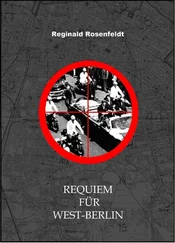Isaiah Berlin - Russian Thinkers
Здесь есть возможность читать онлайн «Isaiah Berlin - Russian Thinkers» весь текст электронной книги совершенно бесплатно (целиком полную версию без сокращений). В некоторых случаях можно слушать аудио, скачать через торрент в формате fb2 и присутствует краткое содержание. Год выпуска: 0101, Жанр: Старинная литература, на русском языке. Описание произведения, (предисловие) а так же отзывы посетителей доступны на портале библиотеки ЛибКат.
- Название:Russian Thinkers
- Автор:
- Жанр:
- Год:0101
- ISBN:нет данных
- Рейтинг книги:3 / 5. Голосов: 1
-
Избранное:Добавить в избранное
- Отзывы:
-
Ваша оценка:
- 60
- 1
- 2
- 3
- 4
- 5
Russian Thinkers: краткое содержание, описание и аннотация
Предлагаем к чтению аннотацию, описание, краткое содержание или предисловие (зависит от того, что написал сам автор книги «Russian Thinkers»). Если вы не нашли необходимую информацию о книге — напишите в комментариях, мы постараемся отыскать её.
Russian Thinkers — читать онлайн бесплатно полную книгу (весь текст) целиком
Ниже представлен текст книги, разбитый по страницам. Система сохранения места последней прочитанной страницы, позволяет с удобством читать онлайн бесплатно книгу «Russian Thinkers», без необходимости каждый раз заново искать на чём Вы остановились. Поставьте закладку, и сможете в любой момент перейти на страницу, на которой закончили чтение.
Интервал:
Закладка:
of the entire Ruv.ian intelligentsia from its beginnings. The moral
confusion was very great. 'Our time longs for convictions, it is tormented by hunger for the truth,' wrote Bdinsky in 1 8.p, when Turgenev was twenty-four and had become intimate with him, 'our
age is all questioning, questing, searching, nostalgic longing for the
truth . . . '1 Thirteen years later Turgenev echoed this: 'There are
epochs when literature cannot mertly be artistic, there are interests
higher than poetry.'1 Three years later Tolstoy, then dedicated to the
ideal of pure an, suggested to him the publication of a purely literary
and artistic periodical divorced from the squalid political polemics of
the day. Turgenev replied that it was not 'lyrical twittering' that the
times were calling for, nor 'birds singing on boughs';t 'you loathe this
political morass; true, it is a dirty, dusty, vulgar business. But there is
dirt and dust in the streets, and yet we cannot, after all, do without
towns.'5
The conventional picture of Turgenev as a pure artist drawn into
political strife against his will but remaining fundamentally alien to
it, drawn by critics both on the right and on the left (particularly by
those whom his political novels irritated), is misleading. His major
1 Ludwig Pietsch describes this incident aa related to him by Turgenev.
See JnostrtltJtJtlJtl lritilta o TurgtntrJt (St Petenburg, 1 884), p. 147. Pietsch is
quoted by E. A. Soloviev (l.S. TurgttrtrJ. Ego zlliu' i littrfllllr"11tlJtl dtytlttl'nost'
(Kazan, 19zz), pp. 39-40), who in tum is quoted by J. Mourier. This latter,
apparently misreading Soloviev, has it that the woman in question was
Turgenev's mother. J. Mourier, lr�an Strgulilr�itcll Tourgulntff a Spaulol
(St Petersburg, 1 899), p. z8.
• 'Rech' o kritike', Polnoe so6ranit socllintnii, vol. 6 (Moscow, 195 5),
pp. z67, z69.
1 Letter to V asily Botkin, z9 June 1 8 5 5. I. S. Turgenev, Polnot so6rt�nit
l«hitJtJiii i pistm (Moscow/Leningrad, 1960-68), Pis'mt�, vol. z, p. z8z. All
references to Turgenev's letten are to this edition, unless otherwise indicated.
t Letter to L. N. Tolstoy, z9 January 1 8 58.
a To Tolstoy, 8 April 18s8.
268

FATHERS AND C H I LDREN
novels, from the middle iSsos onwards, are deeply concerned with the
central social and political questions that troubled the liberals of his
generation. His outlook was profoundly and pennanently influenced
by Belinsky's indignant humanism and in particular by his furious
philippics against all that was dark, corrupt, oppressive, false.1 Two
or three years earlier, at the University of Berlin, he had listened to
the Hegelian sermons of the future anarchist agitator Bakunin, who
was his fellow student, sat at the feet of the same Gennan philosophical
master and, as Belinsky had once done, admired Bakunin's dialectical
brilliance. Five years later he met in Moscow and soon became intimate
with the radical young publicist Herzen and his friends. He shared
their hatred of every form of enslavement, injustice and brutality, but
unlike some among them he could not rest comfortably in any doctrine
or ideological system. All that was general, abstract, absolute, repelled
him: his vision remained delicate, sharp, concrete, and incurably
realistic. Hegelianism, right-wing and left-wing, which he had imbibed
as a student in Berlin, materialism, socialism, positivism, about which
his friends ceaselessly argued, populism, collectivism, the Russian
village commune idealised by those Russian socialists whom the
ignominious collapse of the left in Europe in 1 848 had bitterly
disappointed and disillusioned-these came to seem mere abstractions
to him, substitutes for reality, in which many believed, and a few
even tried to live, doctrines which life, with its uneven surface and
irregular shapes of real human character and activity, would surely
resist and shatter if ever a serious effort were made to translate them
into practice. Bakunin was a dear friend and a delightful boon companion, but his fantasies, whether Slavophil or anarchist, left no trace on Turgenev's thought. Herzen was a different matter: he was a
sharp, ironical, imaginative thinker, and in their early years they had
much in common. Yet Herzen's populist socialism seemed to Turgenev
a pathetic fantasy, the dream of a man whose earlier illusions were
killed by the failure of the revolution in the west, but who could
1 'Doubb tormented (Belinsky], robbed him of sleep, food, relendessly
gnawed at him, burnt him, he would not let himself sink into forgetfulness,
did not know fatigue . . • his sincerity affected me too,' he wrote in his
reminiscences with characteristic self-deprecating irony and affection, 'his
fire communicated itself to me, the importance of the topic absorbed me; but
after talking for two to three hours I used to weaken, the frivolity of youth
would take its toll, I wanted to rest, I began to think of a walk, of dinner • • . '
Lilmzlurnyt i zhiuisl.it oospomiflt�fliya (Leningrad, 1934), p. 79·
•'
:169


R U S S I AN T H INKERS
not live long without faith; with his old ideals, social justice, equalitr,
liberal democracy, impotent before the forces of reaction in the west,
he must find himself a new idol to worship: against 'the golden calf'
(to use Turgenev's words) of acquisitive capitalism, he set up 'the
sheepskin coat' of the Russian peasant.
Turgenev understood and sympathised with his friend's cultural
despair. Like Carlyle and Flaubert, like Stendhal and Nietzsche, Ibsen
and Wagner, Herzen felt increasingly asphyxiated in a world in which
all values had become debased. All that was free and dignified and
independent and creative seemed to Herzen to have gone under beneath
the wave of bourgeois philistinism, the commercialisation of life by
corrupt and vulgar dealers in human commodities and their mean and
insolent lackeys who served the huge joint-stock companies called
France, England, Germany; even Italy (he wrote), 'the most poetical
country in Europe', when the 'fat, bespectacled little bourgeois of
genius', Cavour, offered to keep her, could ·not restrain herself and,
deserting both her fanatical lover Mazzini and her Herculean husband
Garibaldi, gave herself to him.1 Was it to this decaying corpse that
Russia was to look as the ideal model? The time was surely ripe for
some cataclysmic transformation- a barbarian invasion from the east
which would clear the air like a healing storm. Against this, Herzen
declared, there was only one lightning conductor-the Russian peasant
commune, free from the taint of capitalism, from the greed and fear
and inhumanity of destructive individualism. Upon this foundation a
new society of free, self-governing human beings might yet be built.
Turgenev regarded all this as a violent exaggeration, the dramatisation of private despair. Of course the Germans were pompous and ridiculous; Louis Napoleon and the profiteers of Paris were odious,
but the civilisation of the west was not crumbling. It was the greatest
achievement of mankind. It was not for Russians, who had nothing
Читать дальшеИнтервал:
Закладка:
Похожие книги на «Russian Thinkers»
Представляем Вашему вниманию похожие книги на «Russian Thinkers» списком для выбора. Мы отобрали схожую по названию и смыслу литературу в надежде предоставить читателям больше вариантов отыскать новые, интересные, ещё непрочитанные произведения.
Обсуждение, отзывы о книге «Russian Thinkers» и просто собственные мнения читателей. Оставьте ваши комментарии, напишите, что Вы думаете о произведении, его смысле или главных героях. Укажите что конкретно понравилось, а что нет, и почему Вы так считаете.










